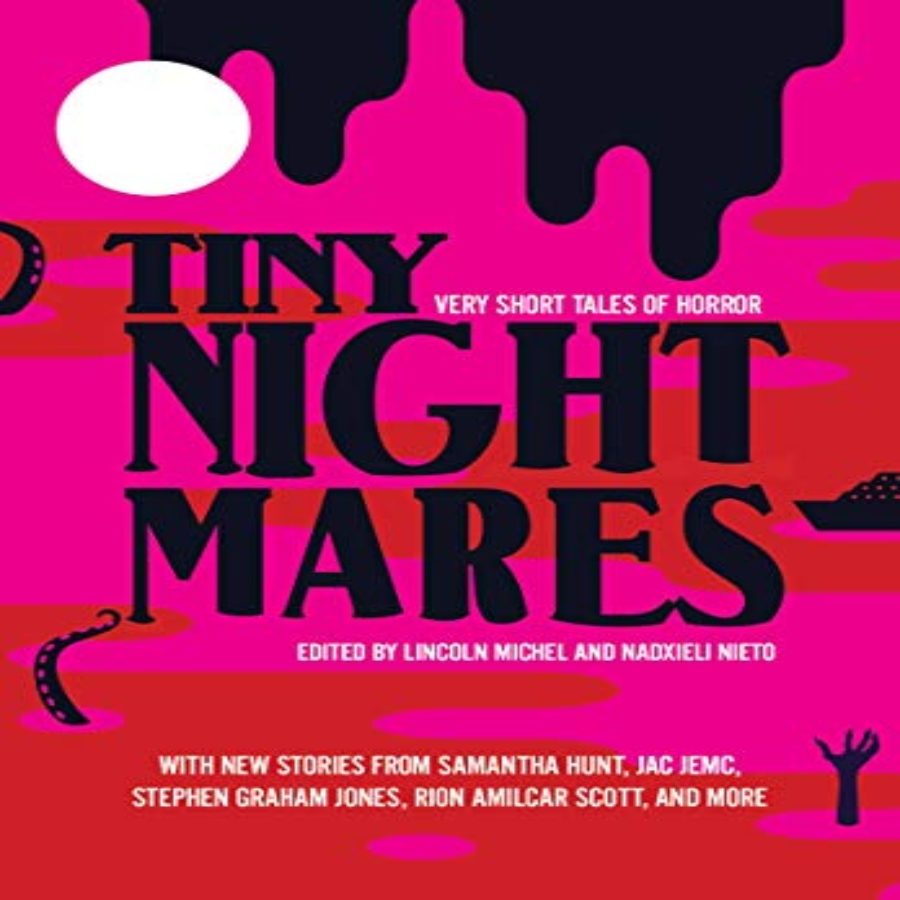
Horror Awaits: A review of Tiny Nightmares
Flash is known for its tricks, the way it sneaks into our subconscious as an ‘easy’ task. Often when I’m reading through our queue I’ll come across cover letters from submitters who are just getting back into writing and think that flash is a natural way to start again, given how short the stories are. What they don’t know (yet) is that great flash reads so naturally because that writer has been condensing their stories for years, tightening and tightening into a concise tone, sharpening details until they cut deep, carving out arcs that take only a few hundred words to come down from. Flash packs the hardest punch around because of its containment and because of that we, as flash writers and readers, find ourselves consuming tens of hundreds of stories a year, all neat within different confines of genre. Given the turn of weather and the impending doom of the clocks lurching forward (and, one may dare to say, the horror of our political climate), Tiny Nightmares comes with good horror tidings, demolishing any neat genre bracket you hope to contain it in.
Released by Catapult and edited by Lincoln Michel and Nadxieli Nieto, Tiny Nightmares holds 44 delectable stories that worm their way into day to day horrors. Broken into four sections aptly named Heads, Hearts, Limbs, and Viscera, Tiny Nightmares pulls shorts from some of our favorite darling indie presses, reprints from Gigantic, Paper Darts, Electric Lit, and countless others. The anthology kicks off with “Guess” by Meg Elison. While at one point this story may have read as a preemptive tale of a fortune teller that has come into too much power, the story now reads as a foreshadowing bode to our pandemic, with a mass wave of unavoidable death trickling over the land. From there, the collection does not let up in the ways it takes horror and spins it into everyday occurrences. “Jane Death Theory #13” by Rion Amilcar Scott weaves footnotes, notating very real cases, into fiction to tell the story of coverups within the police force. “Instrument of the Ancestors” by Troy L. Wiggins examines the way generational and childhood traumas can haunt us until death. Theresa Hottel, in “The Wheat Woman”, takes us to rural America in an isolating story of a mother and daughter bound together by blurry violent thoughts.
Interspersed amongst the heavier stories of implied gore and grit are gems of humor. In Ben Loory’s “Pictures of Heaven”, Loory unravels at deadpan speed landing on two lines that leave the reader in a bloodied Heaven. “The Barrow Wight” by Josh Cook discovers frozen limbs discarded in the snowbanks. Cook leans into the absurdity and playfulness of horror when introducing readers to found limbs. “Then…(fuck it) the other foot dropped.” Cook quips. Hilary Leichter pulls us through a wildly dysmorphic world as humans turn into dogs, dogs into humans. The levity that Leichter achieves through prose twists all the more deadly once the end paragraph stops us in our tracks. The common thread that ties all of these stories together? The trademark universality of fear reigns supreme throughout. Tiny Nightmares understands how quiet descriptors can pile into towering monsters. The way the archive is ordered is no mistake. This collection systematically confuses and distorts the reader with each new reset in story. It mimics horror’s mutable form, packed with anxieties, ticks, laughter, violence. This small book is meant to be tucked inside of your coat pocket all winter long, ready to be passed around the evening’s bonfire. It is meant to travel campsite to campsite, with drops of warm whiskey straight from the flask. It is meant to sit bedside for the nights we are stranded inside with ice and hail hitting hard against windows. Perhaps it’s even meant to be taken to doctor’s appointments. It is there, in our mundane world, that this book does the heavy lifting, placing a finger on what we shield our eyes to each day. Within each other and ourselves the real horror awaits.
K Chiucarello is a writer and editor living in the Hudson Valley. Their work has appeared in Longleaf Review, them., Trampset, XRAY Lit, and others. They are a contributing short fiction editor for Barren Magazine and a reader for Fractured Lit. Twitter quips on gender and writing are @_kc_kc_kc_ .
Submit Your Stories
Always free. Always open. Professional rates.
